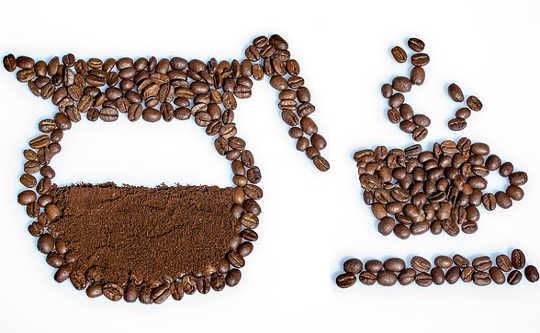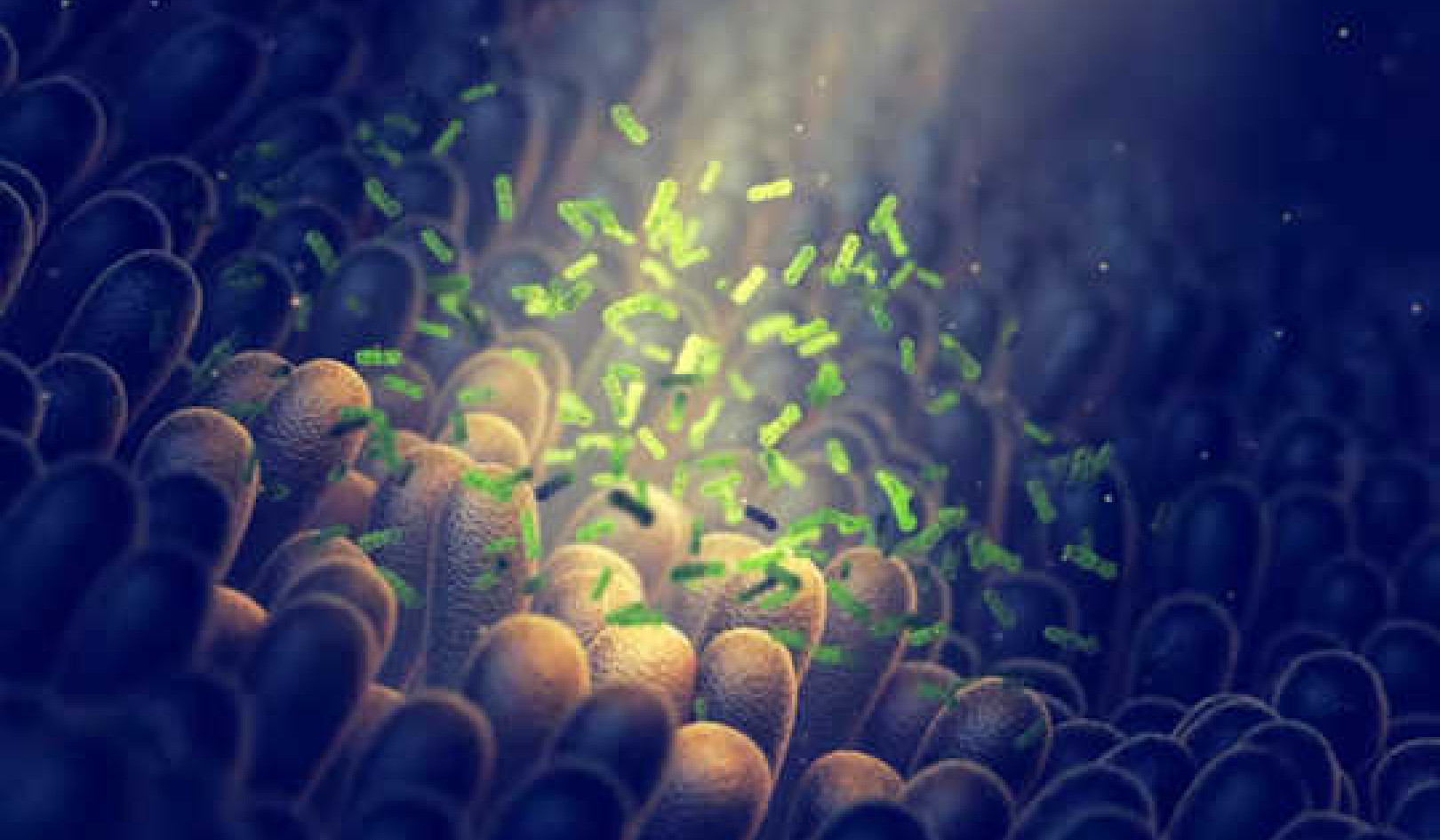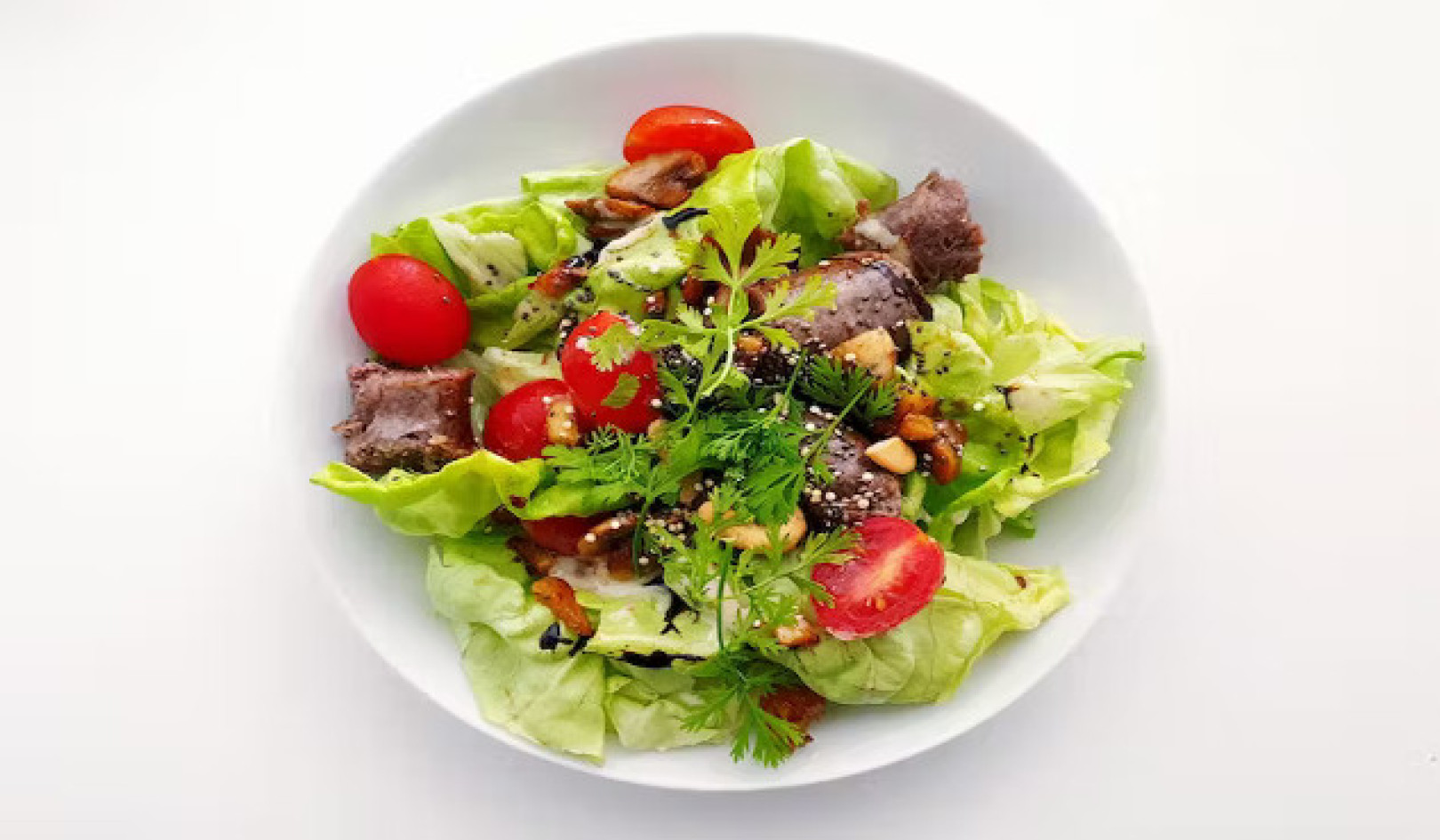
Image by Myriam Zilles
No other disease affects as many people as addiction. Current estimates suggest that addictions affect one-third of the population in the United States; that's one in three people who are addicted or are directly involved with an addict. Of course, when most of us hear the word addict, we think crack, or cocaine, or heroin, or any of the other horrifyingly addictive illegal street drugs we've been teaching our children to abhor. Certainly we don't think about, say, sugar -- and yet sugar is the most prevalent addictive substance in the world!
As a society we're well schooled on what constitutes an addiction, as well as what does not. The United States' "war on drugs" is not about getting office workers to ease back on coffee, though perhaps it should be -- caffeine has been linked to anxiety, depression, insomnia, fibrocystic breast disease, cardiovascular disease, birth defects, and reproductive problems, and, as you've probably found out for yourself, it's highly addictive. When our schoolchildren wear T-shirts emblazoned JUST SAY NO, they're not talking about chocolate -- although it can stunt their growth and cause fatigue, hyperactivity, obesity, depression, acne, heartburn, and heart disease. And, yes, chocolate works just like an addictive drug -- it stimulates feel-good neurotransmitters, and when these effects wear off, it leaves us wanting more.
This book, Addiction-Free-Naturally, addresses what could be called societal addictions: the addictive substances that have wormed their way into the daily life of Western culture. I'm not talking about smoking dope here; I'm talking about that habitual morning cup of coffee, about cigarette breaks, about refined sugar being a major ingredient in just about every packaged food on the market. Addictions are endemic to our society. Some of us are fortunate enough to avoid them. Some of us know we have addictions, and we try time and time again to kick them. Others of us have simply yet to see the warning signs.
No substance is all good or all bad. As the old proverb says, "The evil lies within the man, not the drug." Most addictive substances have significant and valuable applications. We know these uses, and we know the dangers inherent to them. If we ignore the dangers, we must take responsibility for our decisions. Addiction is our own self-made malaise. We have created it, and we are the only ones who can overcome it.
Having an addiction does not make you a bad or weak-willed person. Indeed, addictions are quite common; more people have them than not. Some addictions are a self-destructive response to life stressors. Others are a natural by-product of the society we live in. The important thing -- and often the most difficult thing -- is to realize and acknowledge an addiction. Once you've taken that first step, you're well on your way to beating it.
The Quest for Purity
Throughout history virtually every culture has devised some way of altering consciousness, whether it be through fermented fruit or grain, mushrooms, or tobacco. Alcohol, tobacco, and various other mind-bending substances were traditionally used for medicine, ceremony, and celebration. In past ages addiction was considered a mortal sin and was treated with ridicule, punishment, and even exorcism.
When the world of medicine changed, however, it changed fast. In the nineteenth century active plant ingredients were discovered and isolated in quick succession -- morphine in 1806, codeine in 1832, atropine in 1833, caffeine in 1841, cocaine in 1860, heroin in 1883, and mescaline in 1896.
Addictive substances began to become a greater part of society. By 1850, for example, sugar (99.5 percent sucrose) became widely available and very cheap. And in the 1860s alcohol and narcotics replaced calomel (made from mercury) and bleeding as the vogue medical treatments. Though that may not sound like a big improvement, it was: at least alcohol and narcotics killed you slowly, rather than quickly, and if you managed to stop taking them before the end, they actually could do you some good.
Chemists became obsessed with extracting active ingredients from plants. Somehow it just seemed more scientific and modern to turn everything into a white powder: cocaine, heroin, and for that matter white sugar and flour. Medicine embarked on a quest for purity. Dried green plants seemed too plain and primitive -- and less profitable.
The more refined a substance becomes, the more likely it is to have side effects and addictive tendencies. Plants are a symphony of structure and wonder -- vitamins, minerals, essential oils, blood-building chlorophyll, saponins, glycosides, alkaloids, and more. They are not meant to be refined. Take, for example, opium. It has traditional use in folk medicine as a sedative and soporific, and it's only mildly addictive; once refined to a white crystalline form, however, it becomes heroin, a highly addictive substance with incredibly dangerous side effects.
It was not until after World War II that addiction was recognized as a legitimate disease.
Why Addiction Occurs
Why do some people find themselves frequently indulging in things that they know are not good for them, while others are able to exercise restraint without struggling? Many addictions have their roots in painful childhood experiences. According to a study undertaken by the National Academy of Sciences, children are more likely to end up addicted to something if they are physically abused, humiliated, or lied to, and if their parents are themselves substance abusers. For example, alcoholism is four to five times more prevalent among the biological children of alcoholics than among those with nonalcoholic parents.
New research suggests that we may well be hardwired for addiction from a very tender age. Specific signs point to children at risk. Bottle-fed children with learning disabilities or attention deficit disorder who eat excessive amounts of sugary foods and receive little guidance in accepting responsibility are at higher risk of developing allergies, diabetes, and addictive tendencies. Deprivation or overindulgence and shifts between excessive praise and discipline during childhood can also contribute to addiction in adulthood.
Children in the United States often begin experimenting with drugs and alcohol as early as the fourth grade. In the lower grades they are more likely to try substances to feel older, in the middle grades to fit in, and in the upper grades for a good time. Young people who have little interest in spiritual values or academic goals and lack parental support are at the highest risk for drug abuse. Those who share a close relationship with family members and feel a part of a loving community are less likely to get into trouble with substance abuse. Families can help keep their children from developing dangerous addictions by establishing good communication patterns early on and helping their children set realistic goals for the future. The old saying is true: "Teach your children well!"
Still, even those with relatively uneventful childhoods can grow into adults with emotional imbalances. Who doesn't have a mustard seed of insecurity hidden away inside? As children we were afraid of the monsters under the bed, and as adults we give the monsters new names: financial insecurity, relationship problems, job stress. All stem from fear of the unknown and fear of change. If loneliness, rejection, self-destruction, hostility, anxiety, and stress are the seeds firmly planted in our psyches, then fear is the water and sunshine that helps addiction spring up. Not feeling adequately loved and not being able to express our true feelings, dreams, and fears can set us up for hard times and open the door to substance abuse.
Biological Factors in Addiction
Many biological factors can contribute to addictions, including low thyroid function, poor adrenal function, malfunctioning neurotransmitters, nutritional deficiencies, adrenal insufficiency, fatigue, and yeast overgrowth. Two of the most common are hypoglycemia and food allergies.
The correlation between hypoglycemia and addiction is indisputable. The question is which causes which. It's known that hypoglycemics have a strong reaction to simple sugars, such as those found in food and alcohol. And many addictive substances, including tobacco, alcohol, and sugar, raise blood sugar levels, which over time can lead to hypoglycemia. So does hypoglycemia make you more prone to developing addictions, or is it the addiction that makes you hypoglycemic? It's likely to be a little of both. What's interesting is that symptoms of hypoglycemia are the same as symptoms of addiction: irritability, restlessness, fatigue, anxiety, depression, confusion, sluggish thinking, emotional outbursts, and negativity.
Hypoglycemia can play a part in antisocial behavior as well. According to Michio Kushi, author of Crime and Diet: The Macrobiotic Approach, as much as 80 to 85 percent of our prison population is hypoglycemic.
Allergies can also be major factors in addictive behavior. If you consume a food to which you are allergic or sensitive, you may initially experience an increase in metabolism, causing an energy rush. As this feeling wears off and you return to normal, you feel a decrease in energy, which leads to a craving for the food that stimulated that high. Allergies are frequently the culprit behind food addictions and can even stimulate alcohol addictions, because the grains used to make alcohol -- wheat, rye, and barley -- are common allergens.
Eastern Perspectives on Addiction
Addictions cause stagnation of chi (life force) in the liver. The liver cleanses the body of negative emotions, and chi stagnation in the liver contributes to feelings of anger and stunts creativity.
Addictions also cause kidney and adrenal stress, which leads to coldness in the body, frequent urination, and jing (vital essence) deficiency. TCM (Traditional Chinese Medicine) holds that when the kidneys are weak, the brain also becomes weak.
Addiction causes derangement in the heart-mind-spirit connection, contributing to lack of concentration, agitation, and sleep disorders as well as general deficiency causing lack of motivation, energy, paleness, thinness, and lack of appetite. Addiction also causes a deficiency in chi because the abuser focuses on the addictive substance rather than true nourishment. A chi deficiency can lead to a range of emotional, social, spiritual, and physical disharmonies.
Beating Addictions
No one ever intends to become addicted. But most of us underestimate the power an addictive substance can have, and we overestimate our power of self-control. But just as habits can be acquired, so can they be broken. Others have done it, and you can, too! In giving up your addiction, you'll learn how to nourish your body, mind, and soul, and how to stay healthy and addiction-free for life.
Remember, it took more than a few days for a habit to become your addiction, and it will take more than a few days for you to banish it from your life. Good luck!
Are You Addicted?
1. Do you feel that you just don't want to stop indulging in a particular substance -- caffeine, sugar, tobacco, alcohol -- right now, although you could at any time?
2. Have you ever tried to stop for a week but been unable to do so?
3. Do you resent the advice of others who express concern about your substance use?
4. Have you ever tried to control your addiction by switching to an alternative addictive substance? For instance, have you ever taken up smoking so that you could give up drinking?
5. Do you envy people who can indulge without getting into trouble?
6. Has your substance use created problems with friends and family?
7. Do you try to avoid family or friends when you're using your substance?
8. Have you lost relationships because of substance abuse?
9. Are your friendships determined by whether others indulge in the same substances as you?
10. Do you indulge in your substance alone?
11. Have you ever neglected your family or work for more than two days in a row due to substance abuse?
12. When substances are limited or unavailable at social events, do you try to obtain some anyway?
13. Have you missed time from work during the past year due to substance use?
14. Has your substance of choice stopped being fun to use?
15. When you are low on your substance, do you feel anxious or worried about how to get more?
16. Do you plan your life around your substance use?
17. Do you ever consume more of your particular substance than you intend to?
18. Are you consuming more than you used to in order to feel the same effects?
19. Do you consume as much as you can and feel reluctant to discard any leftovers?
20. Are you experiencing financial difficulty due to substance use?
21. Do you use your substance when you are disappointed, depressed, or going through a difficult time?
22. Does your substance use affect your sleep?
23. Has your sexual ability or desire suffered from your substance use?
24. Are you concerned that if you stop using, you will lack energy, motivation, confidence, or the ability to relax?
25. Do you use your substance repeatedly to sleep or stay awake?
26. Do you ever lie to others about how much or how often you consume your particular substance?
27. Have you ever stolen money or goods to support your habit?
28. Have you lost a job because of substance use?
29. Do you ever regret the way you behaved while you were on a substance-use high?
30. Do you experience irritability, headaches, or tremors when you have not consumed your particular substance for a while?
31. Have you ever passed out from substance use?
32. Have you ever felt your life would be more productive if you were not indulging in that particular substance?
33. Have you become more irritable and difficult to get along with?
34. Is your pattern of use potentially dangerous? (This can be true even in cases where substance consumption is neither frequent nor excessive.)
35. Do you lack self-control in deciding whether or not to consume your particular substance?
36. Is your habit putting you into a state of poor health?
37. Is your substance abuse dangerous to others? (Via secondhand smoke, drunk driving, using up family resources, et cetera?)
How many questions did you answer yes to? Deep down inside, if you are being honest with yourself, you know if you have a substance-abuse problem or are on your way to one. Do something about it now, while you can.
©2001, by Brigitte Mars. All Rights Reserved.
Reprinted with permission of the publisher,
Healing Arts Press. www.innertraditions.com
Article Source
Addiction-Free--Naturally: Liberating Yourself from Tobacco, Caffeine, Sugar, Alcohol, Prescription Drugs
by Brigitte Mars, A.H.G.
 Addiction-Free--Naturally offers gentle but effective ways to ease cravings and nourish the body, as well as information on cleansing the body of accumulated toxins and using natural remedies for stress relief. The remedies can be used in conjunction with conventional therapies, such as psychotherapy or Alcoholics Anonymous meetings.
Addiction-Free--Naturally offers gentle but effective ways to ease cravings and nourish the body, as well as information on cleansing the body of accumulated toxins and using natural remedies for stress relief. The remedies can be used in conjunction with conventional therapies, such as psychotherapy or Alcoholics Anonymous meetings.
Info/Order this book. Also available as a Kindle edition.
About the Author
 Brigitte Mars, a founding member of the American Herbalists Guild, is an herbalist nutritional consultant, and teacher with thirty years of experience. She is the author of Rawsome!: Maximizing Health, Energy, and Culinary Delight With the Raw Foods Diet; and co-author of The Hemp Nut Cookbook: Ancient Food for a New Millennium. Visit her website at www.brigittemars.com.
Brigitte Mars, a founding member of the American Herbalists Guild, is an herbalist nutritional consultant, and teacher with thirty years of experience. She is the author of Rawsome!: Maximizing Health, Energy, and Culinary Delight With the Raw Foods Diet; and co-author of The Hemp Nut Cookbook: Ancient Food for a New Millennium. Visit her website at www.brigittemars.com.
Video/Interview with Brigitte Mars: On the importance of herbal medicine in our modern world
{vembed Y=-ebfiWTW2FM}


























